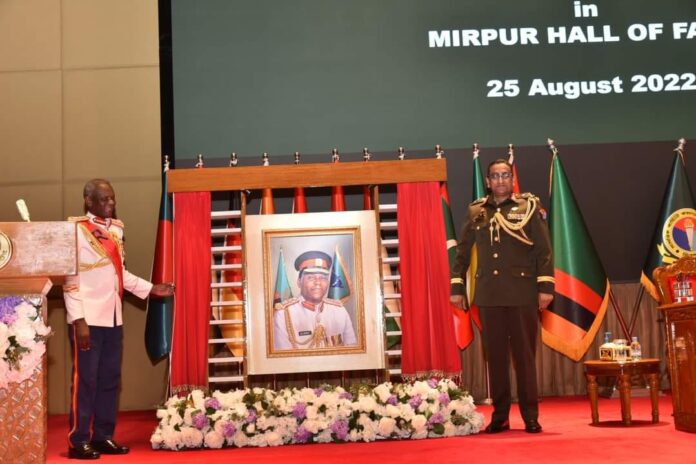Are Zambian Journalists Lazy: The Case of General Nobbie Simbeye
In 2015 Major General Michael Grigg, CBE, MC died in the UK. He was the first Zambia Army Commander at independence in 1964. He served for three years.
The Telegraph carried an obituary consistent with a standard template for telling the story of a person that has died, esp one whose life on earth contributed so much and affected so many.
I read that obituary attentively and I learnt a few details about General Grigg that I had never known earlier. I learnt that he was born in London 1917 and died in 2015 or aged 97. I learnt that he went he went to boarding school at the famous Eaton and graduated from Sandhurst Military Academy. During WWII he served with the British Army on many front lines. He fought in Madagascar in 1942 and later, as a Major, he commanded a vanguard credited with victory at the Battle of Sicily in 1943. After the war, he rose through the ranks to Brigadier in the British Army and commanded various units. He was deployed to the Northern Rhodesian Regiment at Tug Argun Barracks in Ndola, becoming the first Brigadier General in the history of our country. On independence, President Kaunda promoted him to the rank of Major General and appointed him the first Zambia Army Commander. He served in that role until 1967 when he retired and was succeeded by the Rhodesian, Major General Tony Noel Reid. In all his battles and commands, General Grigg was decorated with medals, including the Military Cross or MC, the third highest award given to an officer in the British Army.
Above is the story of General Grigg summarized onto a standard obituary template. The reader understands when and where he was born, where and what he studied; where and how he worked, how and who he served, how he was recognized. Because he was a soldier and commander, we are told he trained at Sandhurst, fought in WWII in Madagascar and Sicily, was awarded the MC medal and he commanded the Zambia Army.
Now compare and contrast with how the Zambian media is covering the death of former Zambia Army Commander, Leiuitenant General Nobbie Simbeye. The obituary is empty. We don’t know his age, where he trained, which battles he fought, which units he commanded, which medals he got… All we are reading is his escape from coup plotters in 1997 and his subsequent sacking. Even the pictures circulated of him are those of a frail man on a wheelchair.
Surely, is that the way our journalists are trained to report the passing of a commander?
I may not be a journalist, but am a citizen. General Simbeye was no ordinary man. He was commander of Zambia Army and an officer that served during the period when our country was under attack from Rhodesia. He is a national hero. He deserves a more decent and befitting obituary, complete with appropriate pictures depicting a military hero and not some frail man.
It’s not hard to get this data. The General worked for Zambia Army, had former school mates and had a family. The role of a journalist is to approach these institutions or people and get correct data. How will future generations know about General Simbeye if the current ones are unaware?
I am dissapointed
